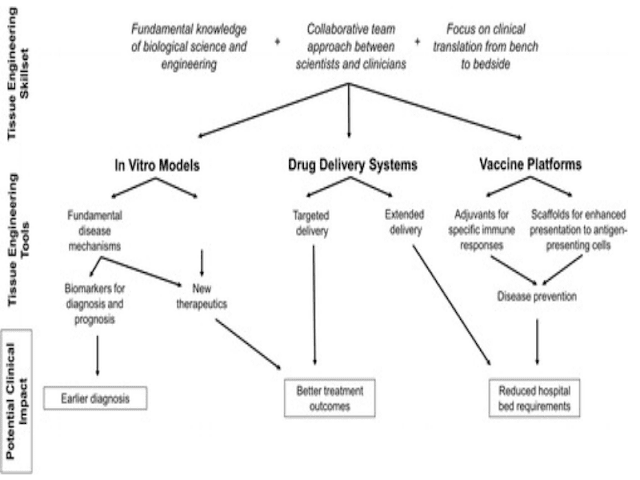Role of Tissue Engineering in COVID-19 and Future Viral Outbreaks / Ruolo dell'ingegneria dei tessuti in COVID-19 e future epidemie virali

Role of Tissue Engineering in COVID-19 and Future Viral Outbreaks / Ruolo dell'ingegneria dei tessuti in COVID-19 e future epidemie virali Segnalato dal Dott. Giuseppe Cotellessa / Reported by Dr. Giuseppe Cotellessa Examples of how tissue engineering skills and tools may be leveraged to have an impact on clinical practice in the setting of a viral outbreak. / Esempi di come le capacità e gli strumenti di ingegneria tissutale possono essere sfruttati per avere un impatto sulla pratica clinica nel contesto di un'epidemia virale Abstract In light of the current novel coronavirus (COVID-19) pandemic, as well as other viral outbreaks in the 21st century, there is a dire need for new diagnostic and therapeutic strategies to combat infectious diseases worldwide. As a convergence science, tissue engineering has traditionally focused on the application of engineering principles to biological systems, collaboration across disciplines, and rapid translation of tech...